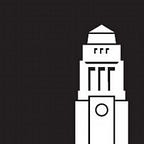Breaking barriers: How the Social Justice Jam connected global communities
The Social Justice Jam: Spaces for Change, held June 10 to 12, 2024, brought together students, educators, and community leaders from across the globe to collaborate, learn, and solve real-world problems in innovative ways. What started as a partnership between the University of Leeds, the University of Pretoria, Mothing African Heritage, and LS14 Trust culminated in a three-day event funded by the Horizons Institute.
The Social Justice Jam was designed to break down the walls that often separate us — culturally, geographically, and across disciplines — and create a space where diverse voices could join forces to co-learn and co-solve real-world problems. This journey, while not without its challenges, was a deeply rewarding experience for all involved. There was coordinated input from the University of Leeds and the University of Pretoria, as well as the communities of Mamelodi in South Africa and Seacroft in Leeds. The event aimed to build a fresh, creative and inclusive space for co-learning that felt ground breaking.
In a world facing an ever-growing web of social, economic, and political challenges, this kind of cross-boundary collaboration isn’t just important — it’s crucial. We encourage the development of cross-cutting educational programmes that allow for co-learning and collaborative problem solving.
Though the process wasn’t without its hurdles, the Social Justice Jam demonstrated that meaningful change can happen when we work together across boundaries. As we continue reflecting on the experience, we’re excited to share our key lessons and insights. This is just the beginning of something bigger.
This kind of cross-boundary collaboration isn’t just important — it’s crucial.
Working together
During the Jam we heard from local communities about the work they are doing to tackle challenges with community space access and management. Various co-hosts, facilitators, session leaders, professional staff and community representatives were involved as well.
To start the conference with an important message, Marta Garcia-Haro from SDSN (Sustainable Development Solutions Network) Global reminded us why events such as the Jam are important. They enable cross-University collaborations on issues that align the UN SDG agenda, and remind them of their social mission that speaks to the responsibility towards the communities they serve.
Dr Mabena’s talk was deeply moving and insightful, discussing his and his community’s journey through challenging historical contexts. It also examined the importance of indigenous knowledge in the reinvigoration of the human-nature relationship. Naomi and Tony from Seacroft reminded us that we need to focus on what is strong in communities, placing an importance on both looking inwards to identify capacities and outwards to forge international collaborations, to further enhance the work community organisations are doing.
We need to focus on what is strong in communities
The power of empathy
The second day of the Jam reminded us of the need to empathise with others, whether they are in our local or global community, and the power of telling personal stories. Power was also examined from the perspective of imbalance and a reflection on the different forms of power we are subject to (or we exert). Finally, we worked on divergent and convergent thinking which allowed us to explore different perspectives on the challenges we were tackling.
The final day enabled rich discussions on solutions for the communities and the view that we are all experts in our own knowledge. We also examined how local communities have a power which lies within their traditional knowledge, their ways of working and their ways of producing new knowledge. Hosts, partners, facilitators, and learners agreed that they would like to continue exploring the outcomes from the Jam and even forge new collaborations.
It was really great to see such a diverse range of people collaborating to work towards a common goal!
Real-world impact
Agnetta Nyabundi, Postdoctoral Research Fellow, University of Pretoria and co-host, said: “The Social Justice Jam provided a creative, innovative, interactive and diverse environment for real-life learning and problem-solving.”
Annalisa Mack student sustainability architect, University of Leeds, and co-host said: “The Jam was a fantastic and unique opportunity for people to come up with solutions to real-world issues and have a meaningful impact on communities. It was also really great to see such a diverse range of people collaborating to work towards a common goal!”
Rishabh Bezbaruah sustainability architect, University of Leeds, and co-host said: “The Jam’s inclusive nature, bringing together staff, students, and community members highlighted the strength that emerges when varied viewpoints converge on common challenges. Observing the varied and creative approaches proposed by different working groups to tackle the challenges in Seacroft and Mamelodi demonstrated how cross-cultural collaboration can lead to innovative solutions for complex social issues.”
Next steps
The educational materials we produced during the Jam are available as Open Educational Resources, and you can find them in this link. The important learnings from the Jam are being collated into reports, infographics, publications, and other related opportunities, these will be shared with our communities in the future.
The Jam encouraged the involvement of students; find out how some of the students who attended found the Jam by reading our blog post.
If you would like to explore how the Jam can enhance your area of work in student education, research, or any other area, please get in touch at v.kioupi@leeds.ac.uk.
Vasiliki Kioupi, University of Leeds and Tafadzwa Mushonga, University of Pretoria
